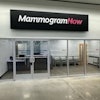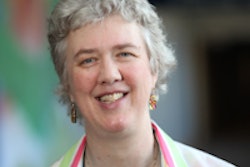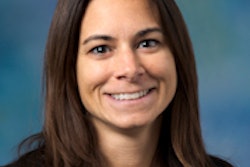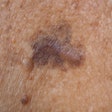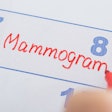Nearly half of women who are eligible for mammography screening have never heard of breast density, and approximately half are unaware of breast density's effect on cancer detection and risk, according to a new study published online in the Journal of Clinical Oncology.
This knowledge gap appears to be influenced by factors such as race, income, and education, making it even more crucial to address the problem, researchers from the Mayo Clinic in Rochester, MN, noted.
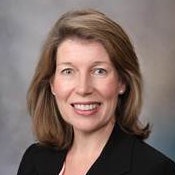 Dr. Deborah Rhodes from the Mayo Clinic.
Dr. Deborah Rhodes from the Mayo Clinic."Many U.S. women lack the information necessary to participate fully in decisions regarding mammography screening, supplemental screening, and hormone therapy," lead author Dr. Deborah Rhodes and colleagues wrote. "Tailoring education for particular groups at risk of lower exposure to health information and greater risk of aggressive forms of breast cancer ... [is] critically important."
How can so many women be unaware of breast density and its effects, especially since 21 states in the past six years have passed legislation mandating that women with dense tissue be notified of their status? Little research has been conducted to determine whether these laws have increased women's awareness of breast tissue density and its risks, Rhodes told AuntMinnie.com, and educational efforts need to be more specific.
"There's this incredible national push toward educating women about breast density," she said. "But there's been little measurement of what women actually know about the issue. If we're going to put out all these resources for notifying women about dense tissue and encouraging supplemental imaging, we should be clear about which women need to hear the message most."
Survey says?
In October 2012, Rhodes' team sent a survey in both English and Spanish to more than 2,311 women. The survey included questions on health history, perceived health status, and use of available healthcare resources; 65% (1,506) of the women invited to participate responded (JCO, March 2, 2015).
The women were asked how many mammograms they had received and about their history of diagnostic breast imaging and biopsies. They were also asked particular questions about breast density, including whether they had heard of the term, if they had discussed their own breast density with a healthcare provider, if they knew their breast density, what impact dense breast tissue has on mammography's effectiveness, and whether dense tissue at mammography puts a woman at increased risk of breast cancer.
Overall, 58% of women had heard of breast density, 49% knew that it affects breast cancer detection on mammography due to a "masking effect," and 53% knew that it increases cancer risk. After adjusting for multiple variables such as race and ethnicity, household income, education, insurance status, and geography, the researchers found the highest breast density awareness among white, non-Hispanic women. Increased awareness of breast density was also associated with higher household income, more education, having received a diagnostic evaluation after a mammogram, and having undergone postmenopausal hormone therapy.
"We certainly found disparities in knowledge and awareness that were linked to income, education, and race and ethnicity," Rhodes said. "And that's disturbing, especially since some groups of minority women are more likely to either die of breast cancer or present with more aggressive forms of it."
In addition, only 43% of respondents who had heard of breast density had discussed their own status with a healthcare provider.
Finally, Rhodes and colleagues also found that breast density awareness, particularly its masking effect on mammography, was higher in Connecticut than all other U.S. states. Connecticut was the first state to implement a breast density notification law, in 2009.
"Connecticut women were more likely to know about breast density's masking effect, but not necessarily that it increases breast cancer risk," she told AuntMinnie.com. "And this is consistent with the notification language dictated by the Connecticut law."
Knowledge is power
Mammography's sensitivity for breast cancer in the dense breast has been less than 50% in some studies -- and women need to know that, according to Rhodes.
"This information isn't an attack on mammography, but a key part of tailoring breast cancer screening appropriately to women," she said. "We need to debunk the notion that women are too fragile to take in this information and make good decisions."
If a high proportion of women have never even heard of breast density -- and if the medical community believes it's important for screening-eligible women to know about it as they make healthcare decisions -- educational efforts need to be more effective, Rhodes concluded.
"Awareness doesn't necessarily translate to knowledge," she said. "We need to be very specific in how we communicate with women about breast density."
